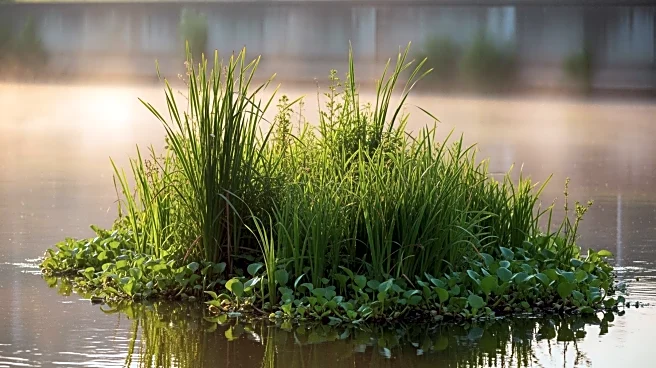What's Happening?
Doug Rosenberg, a guerrilla gardener, installed a pop-up wetland in the Los Angeles River, using rocks to trap sediment and foster ecosystem growth. His project, seen as performance art, aims to demonstrate
that environmental restoration can be achieved through low-tech, small-scale efforts. Despite the project's illegal status, it has sparked interest and debate about urban ecological restoration.
Why It's Important?
Rosenberg's initiative highlights the potential for grassroots environmental activism to influence urban planning and ecological restoration. It challenges traditional approaches to flood management and urban development, advocating for more sustainable and community-driven solutions. The project raises awareness about the importance of preserving natural habitats within urban environments.
What's Next?
The project faces legal challenges due to its unauthorized nature, but it has inspired discussions on urban ecological restoration. City officials and environmental advocates may explore ways to integrate guerrilla gardening into official restoration plans, balancing ecological benefits with flood management concerns.
Beyond the Headlines
The project underscores the tension between grassroots activism and regulatory frameworks, highlighting the need for collaboration between community advocates and government agencies. It also reflects broader societal shifts towards environmental consciousness and sustainable urban development.










